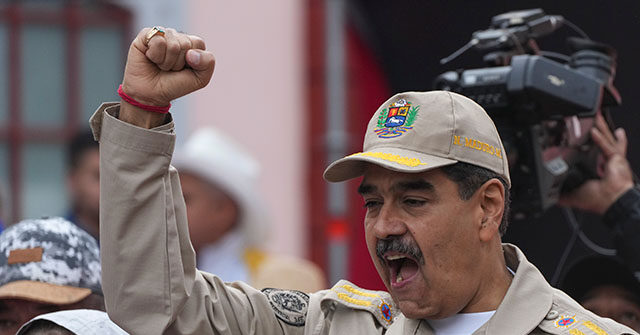On Monday, Venezuelan socialist dictator Nicolás Maduro made claims that the opposition in Venezuela, which he labeled as “fascist extremism,” is attempting to incite a civil war akin to the devastating conflict that has ravaged Syria. Maduro’s rhetoric arose amid the recent developments in Syria, where former dictator Bashar Assad fleed to Russia following the infiltration of Damascus by the Sunni jihadist group Hayat Tahrir al-Sham (HTS). Having formed ideological and strategic alliances with Assad during his regime and maintaining close ties with Iran and Russia, Maduro’s assertions seem to echo a larger narrative he has crafted to delegitimize his opposition and bolster his grip on power.
During a commemorative event for the 200th anniversary of the Battle of Ayacucho, Maduro passionately declared that the Venezuelan populace would not be swayed by calls for civil unrest, reaffirming his confidence in the nation’s stability. He touted a vision of “peace, stability, national union,” insisting that the Venezuelan Constitution would prevail amidst external threats. His comments illustrated a pattern of blaming the United States and the opposition for attempting to replicate international crises within Venezuela. This rhetoric serves to consolidate support among his base while diverting attention from the dire economic and social realities facing the country.
Continuing with a familiar narrative, Maduro and his regime have consistently accused both the United States and the opposition of collaborating in schemes to unseat him, particularly in the lead-up to the fraudulent presidential elections held in July 2023. Despite his assertions of a victorious election, the accusations against the opposition and American citizens appear unfounded, with no substantive evidence presented to validate the claims. Instead, these allegations have been leveraged to justify the arrest of American individuals accused of plotting terroristic actions against the Maduro regime, which raises concerns regarding the use of state power to suppress dissent and retaliate against perceived threats.
The ideological connection between Maduro’s Venezuela and the now-defunct regime of Assad runs deep, rooted since the time of Hugo Chávez. Both leaders forged a partnership based on mutual disdain for U.S. influence, marked historically by Chávez’s gestures of solidarity such as gifting Assad a symbolic replica of a revolutionary sword. This intertwining of relationships persisted post-Chávez’s death in 2013 as Maduro continued to affirm his alignment with Assad. Recent discussions between the two leaders hinted at potential cooperative ventures, including a proposal to build an oil refinery in Syria, a project that could have had ramifications beyond economic benefits, potentially funding terrorist activities.
As the Assad regime crumbled, with the former dictator fleeing to political asylum in Russia granted by Vladimir Putin, Maduro expressed continued support for Assad’s administration. Despite the ousting, the Venezuelan regime opted to remain ambiguous regarding the drastic change in Syria’s leadership. Instead, Maduro’s government propagated a message of desiring peace and unity, emphasizing the importance of maintaining Syria’s territorial integrity and sovereignty. The statement indicated a focus on avoiding external interference while promoting mutual respect for human rights, although it appeared less than genuine given the context of both leaders’ histories of maintaining authoritarian control.
In summary, Maduro’s assertions come at a time of political turbulence for authoritarian regimes allied against U.S. influence. His framing of the Venezuelan opposition as a precursor to civil war draws parallels to the Syrian tragedy while attempting to shore up domestic unity against perceived threats. However, these claims, laden with historical ties to the Assad regime, further illustrate the complexities of authoritarian governance where external narratives often take precedence over domestic realities. Despite a commitment to a peaceful Venezuela, the socio-political landscape remains fraught with tension, underscoring the challenges faced by those within the regime and the opposition alike, in seeking legitimate pathways for resolution amidst the overarching influence of powerful allies.

